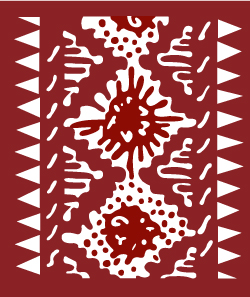April 2025 - The Island of Missing Trees

The Island of Missing Trees by Elif Shafak
The Book Club meet for April 2025 was held on the 25th at Kailash Parbat Restaurant, Nu Sentral, with nine members attending in person and Kathy contributing via email. The discussion was lively and vocal, enriched by personal experiences and thoughtful reflections on the book’s themes, making for an insightful and memorable session. It was a very vocal sharing of views by all participants.
Elif Shafak’s The Island of Missing Trees is set in Cyprus in the mid-1970s and in the early 2000’s, and then London in the late 2010’s, focusing on the civil war in 1974 between the Muslim Turks and the Christian Greeks. It was shortlisted for the 2022 Women’s Prize for Fiction.
A good part of the story is told from the point of view of a fig tree, the writing was beautiful and the characters complicated.
In London, 16-year-old Ada is struggling to deal with the death of her mother and grief of her father. She is completely isolated, without friends at school or family, and she knows nothing of her family history. Her father seems more obsessed with the fig tree in their backyard. In school one day, just before the winter holiday break, she starts screaming for no apparent reason.
As we learn about Ada, we jump back in time to when her father and mother, Kostas and Defne, are teenagers in Cyprus in 1974. As the Turkish and Greeks go from being neighbors to outright warfare, all interaction between the two sides is forbidden, and violence will erupt if Kostas and Defne are found together. A tavern with the best food in town and a fig tree growing on the inside, reaching out through a hole in the roof, offers them a safe place to meet.
I appreciated the detailed history, I learned about Cyprus’ civil war, a conflict that still exists today. I liked that the story wasn’t always what I expected, and the characters were far from perfect. Ada is angry and Kostas goes through his life avoiding conflict and not always fighting for what matters, not always seeing what he should. I loved the aunt who speaks in platitudes.
Love is the bold affirmation of hope, especially for those who are not of your religion, not of your language, not of your blood. You don’t fall in love in Cyprus in the summer of 1974. And yet there they were, the two of them.
Shafak also uses the tree to nicely tie together its two countries and three main characters, and as the author explains, trees give us a larger perspective on history than individual characters can. Thematically, the tree is a witness, an immigrant, even a friend.
This is a story about good people who go through terrible things. I found the book compelling, and the group gave it an overall rating of 8/10
Review by Jayanthi Sinnathamby
